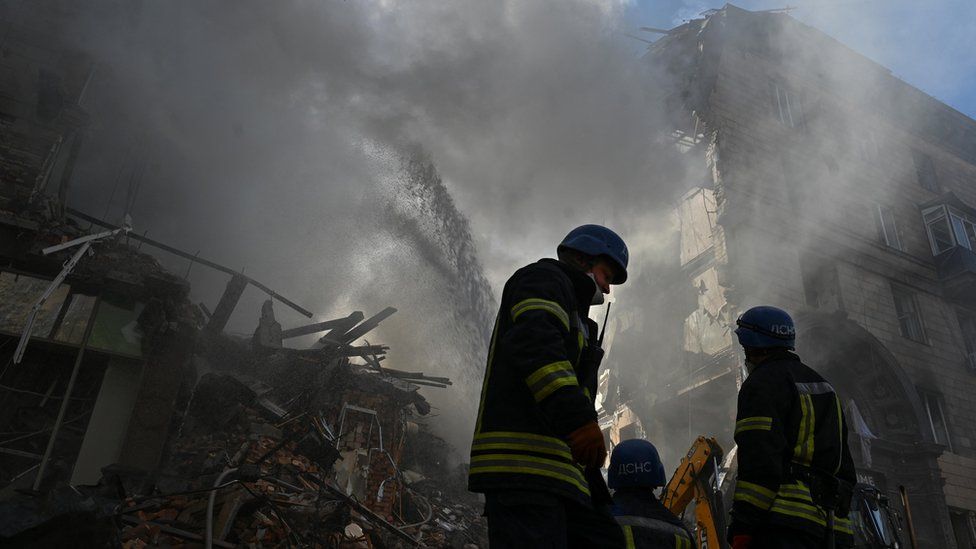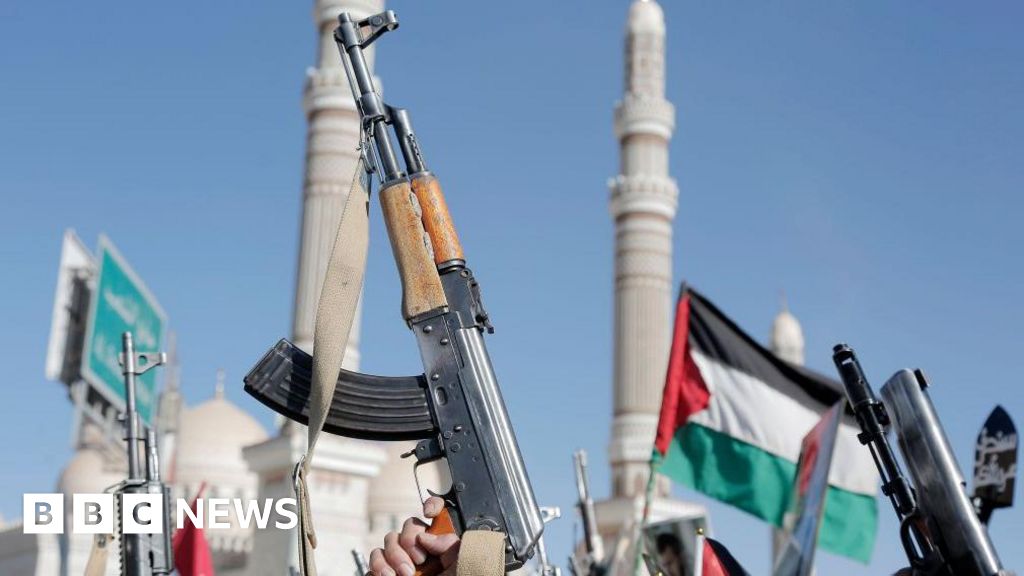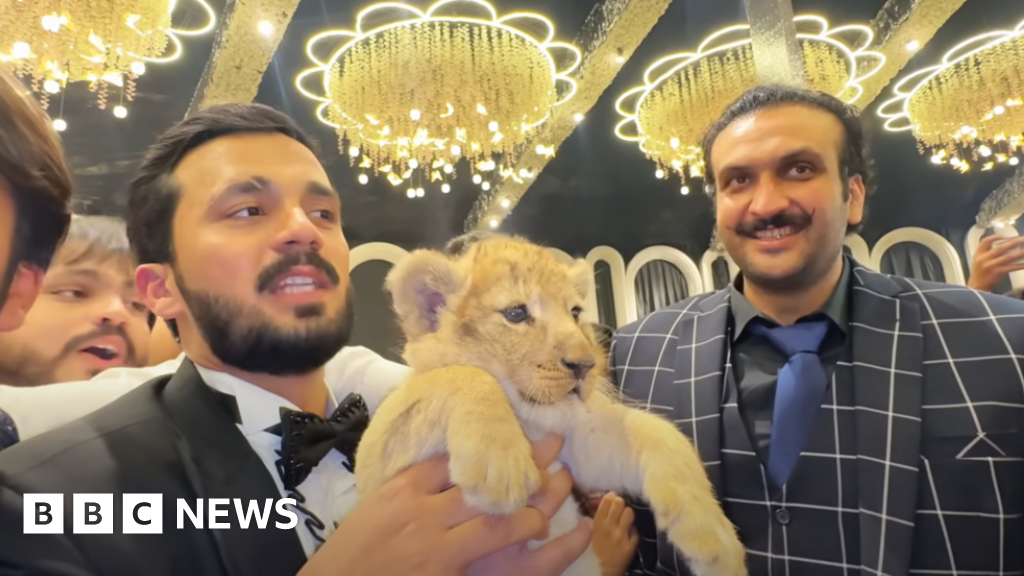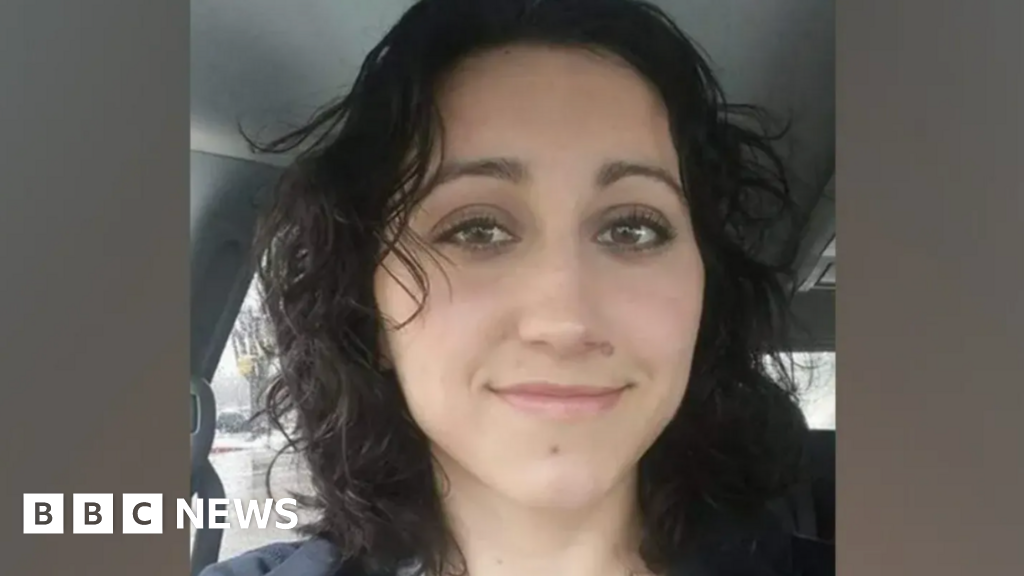ARTICLE AD BOX
 Image source, Reuters
Image source, Reuters
A series of Russian rocket attacks on the southern Ukrainian city of Zaporizhzhia has killed at least seven people, local officials have said.
They said rockets hit residential buildings before dawn and then again several hours later.
Rescue workers are now combing through the shattered remains of an apartment building, but with people still reported to be under the rubble, the death toll could rise further.
WATCH: Rescuers search rubble at missile-hit Ukraine building
One resident told the BBC how she tried to flee with her daughter after the strikes, while another said her elderly relatives had been in one of the destroyed buildings.
"There's very little hope that they're alive. Why are they doing this to us? What are they trying to prove? Killing old people. Why? For what?"
Russia has not commented on the blasts.
As Moscow tries to mobilise extra soldiers for the war effort, thousands have fled Russia to avoid being conscripted for war in Ukraine.
They include two Russian nationals who have been detained by US officials after arriving in a small boat on St Lawrence Island in Alaska.
According to the two US senators who represent the state, the men landed at a beach in the village of Gambell and requested asylum.
The unseen frontier of the war
The war in Ukraine has underlined the growing importance of space to armies on the ground.
The head of the US Space Force, General Jay Raymond, told the BBC it was the "first war where commercial space capabilities have really played a significant role".
While he avoids giving precise details of how the US and its allies have been helping Ukraine, Gen Raymond gives a clear indication of what it has been doing.
"We use space to help strike with precision, we use space to provide warnings of missiles, of any threat that could come to the United States or to our allies or partners," he says.
While Ukraine has no military satellites, it has received significant help from the West in a number of ways.
- Surveillance - including images showing the build-up of Russian forces ahead of the invasion and showing the truth of the Bucha killings.
- Communications - after Russian strikes and cyber-attacks took out key communications nodes in Ukraine, Elon Musk has been credited with getting the country back online via SpaceX's Starlink satellites.
- Precision weapons - Both Russia, and more recently Ukraine, have been relying on space-based positioning, navigation and timing (PNT) to conduct precision strikes on key targets.
European leaders discuss war at summit
Away from the fighting, European leaders discussed Russia's war in Ukraine as they met in Prague as part of a new forum.
UK Prime Minister Liz Truss joined more than 40 leaders from the EU, Turkey, Norway and the Balkans, as they discussed energy, migration and security - with a particular focus on the fighting.
As he arrived, France's Emmanuel Macron spoke of building a "common strategy" in response to Russia's invasion.
Ukraine's President Volodymyr Zelensky spoke via video link, telling the summit: "You and I are now in a strong position to direct all the possible might of Europe to end the war and guarantee long-term peace for Ukraine, for Europe, for the world."
Image source, Sean Gallup/Getty Images
Image caption,Among the European leaders taking part were Liz Truss (top left) and Turkey's Recep Tayyip Erdogan (bottom row, 7th from the right)
Putin at 70
As Russian President Vladimir Putin turns 70 on Friday, academic and author Mark Galeotti has taken a look at some of the moments that have shaped his life.
From taking up martial arts as a 12-year-old to facing a mob in Germany and more recently his isolation during the Covid pandemic, Galeotti charts the experiences that have led him to the invasion of Ukraine earlier this year,
You can read the full piece here.
Image source, Getty Images
Ukraine designers fighting back at Paris Fashion Week
Image source, Marina Yatsenko
"Fashion is communication with the world - it shows we are strong and can keep going," says Ukrainian designer Iryna Kokhana, who had to relocate to London when war broke out.
She is currently showing her designs at Paris Fashion Week, seeing it as a chance to highlight not just her brand, but also her country's resilience.
"Each of us is fighting," she tells the BBC. "It is to show the indomitability of our people, our talents, and our ability to create even during the war, when everything's just falling apart."
Kokhana is founder and chief executive of the Chereshnivska label, which is based in Lviv, near the Polish border.
Ukrainecast
Following the Russian rocket strikes on Zaporizhzhia, the BBC's Vitaly Shevchenko reflects on the impact the war is having on his home town - and the challenges he faces as a journalist to remain impartial, while his friends suffer and die.
Listen to Thursday's episode here.

 2 years ago
25
2 years ago
25








 English (US) ·
English (US) ·